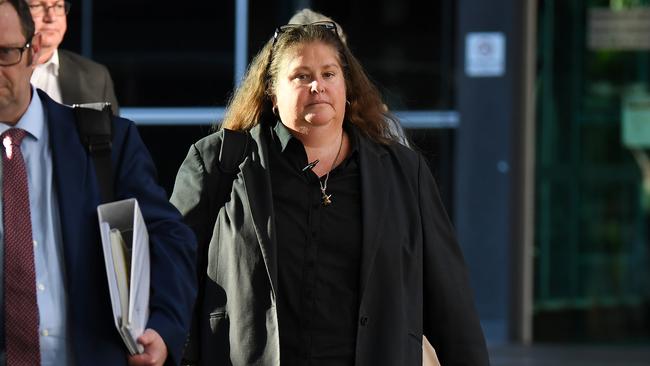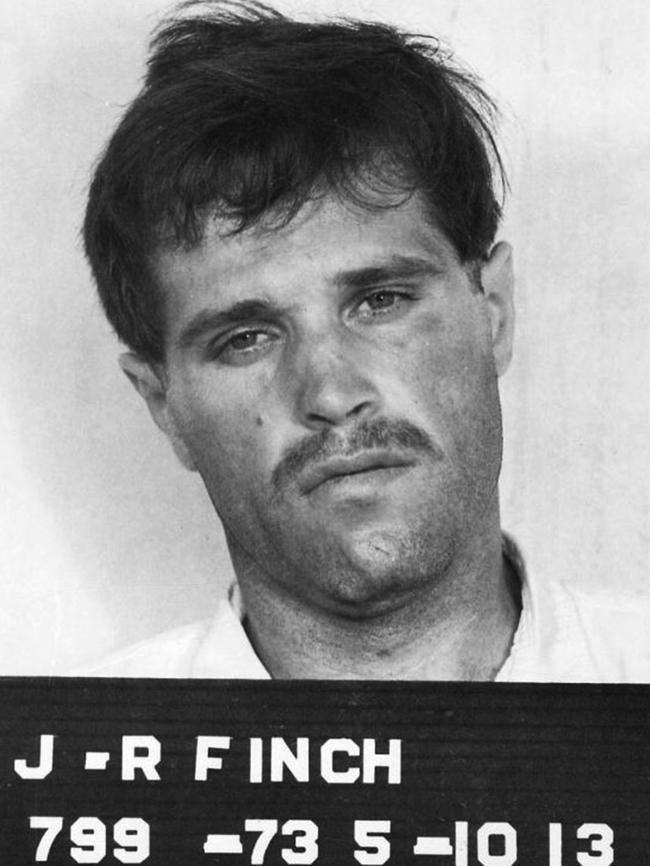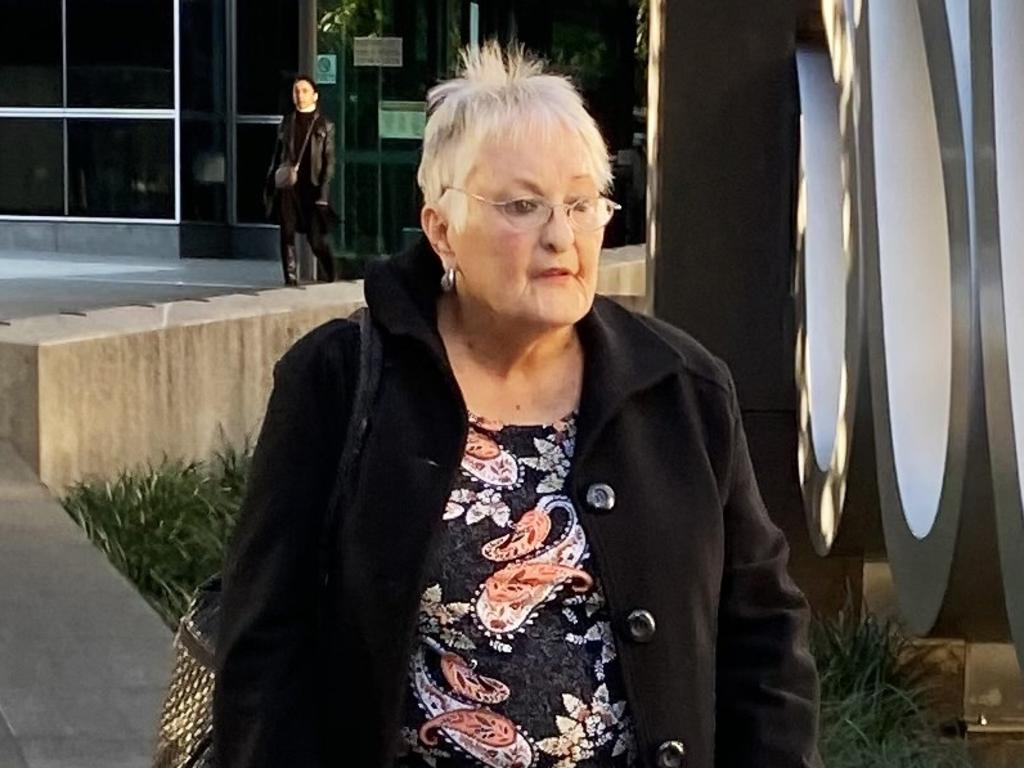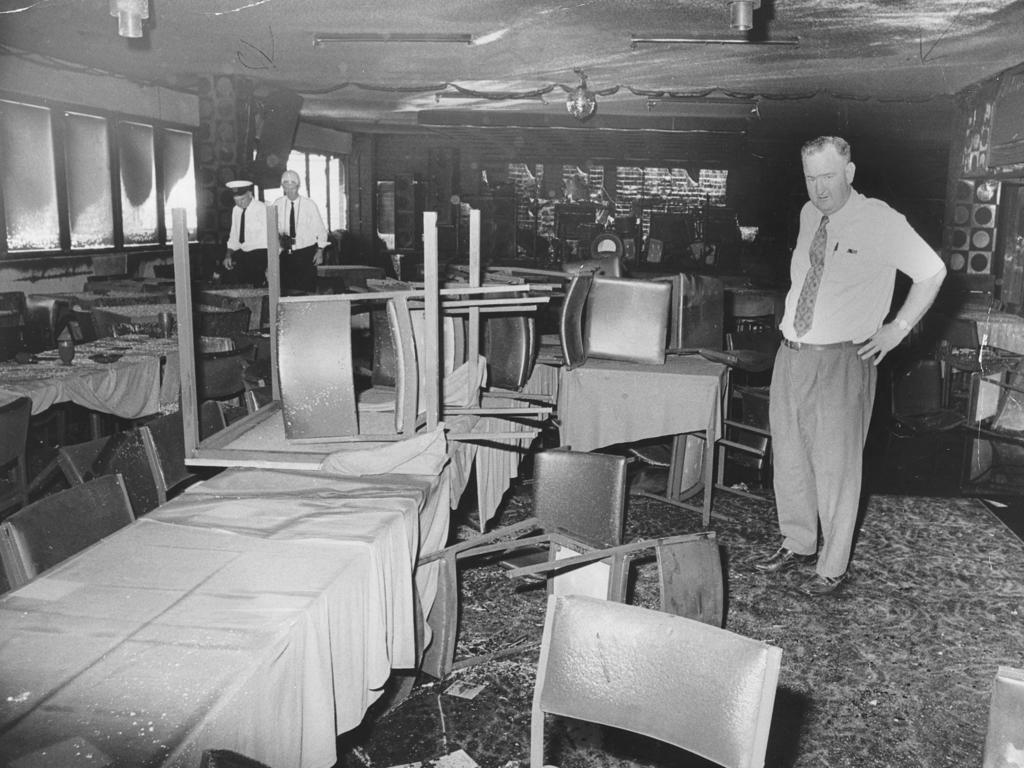Ex-cop tells Whiskey probe detectives forced confession
A former police officer says detectives orchestrated an interview that extracted a supposed admission from a man convicted of the 1973 Whiskey Au Go Go firebombing.

A former police officer has told investigators senior detectives orchestrated an interview that extracted a supposed admission from one of the men convicted of the Whiskey Au Go Go nightclub firebombing that killed 15 people.
In a turbulent day of testimony, the lead detective on the new investigation into the fire also told a coronial inquest that parts of the police evidence compiled in the original 1973 investigation were missing from the file kept in the state archives.
Detective Sergeant Virginia Gray was critical of the original investigation, which she said essentially stopped as soon as charges were laid against two men, John Stuart and James Finch, with no other lines of inquiry chased up.
They were the only people charged over the deadly fire – ignited about 2.08am on March 8, 1973 when two fuel drums were set alight in the foyer of the two-storey nightclub in Fortitude Valley – though rumours have continued to swirl about the involvement of others and a police cover-up.
Detective Gray told Coroner Terry Ryan that pages from the “running sheet” – a record of evidence as it was compiled – were missing from the official file, and about 10 days’ worth of transcripts from the trial that led to the conviction of Stuart and Finch were also missing. Those pages, she said, could have related to lines of inquiry that were mentioned in the investigation but did not appear to have been followed up.

Detective Gray said she did not place much value on an unsigned statement supposedly given to police by Finch, who was jailed for the crime, in which he supposedly admitted to setting the fire.
The inquiry was told former police officer John Kolence, a junior detective at the time of the original investigation, told Detective Gray he witnessed detectives discussing how they would force a confession from Finch and of a seemingly violent incident in the interview room.
“He (Kolence) said that, on the day Finch was arrested, he had the job of babysitting Finch for a short period of time, 15 to 20 minutes,” Detective Gray said.
“He said he subsequently heard or saw … was aware of an incident in the interview room which involved a lot of banging and crashing. He stated that there was some damage to the room after the fact.
“He also stated that he was present for a conversation in which a number of police officers … and then said all of them except Finch were present for this discussion where they were planning or working out how the interview would go.”
Mr Kolence is set to give evidence next week.
Finch, who died in April in his native England, maintained as recently as 2018 that the “coppers done the confession”. Part of the supposed confession was revealed in court on Thursday; Finch allegedly told detectives he “rolled the tins with the caps off into the entrance and I threw the lit packet of matches onto the petrol and I ran”.
Mr Kolence later, coincidentally, worked on the investigation into the disappearance of Barbara McCulkin and her daughters, Vicki, 13, and Leanne, 11, in Brisbane in 1974. It was after a re-examination of evidence in the McCulkin case, and the 2017 conviction of Vince O’Dempsey and Garry Dubois, and the uncovering of possible links between the two cases, that the coronial inquest was ordered.







